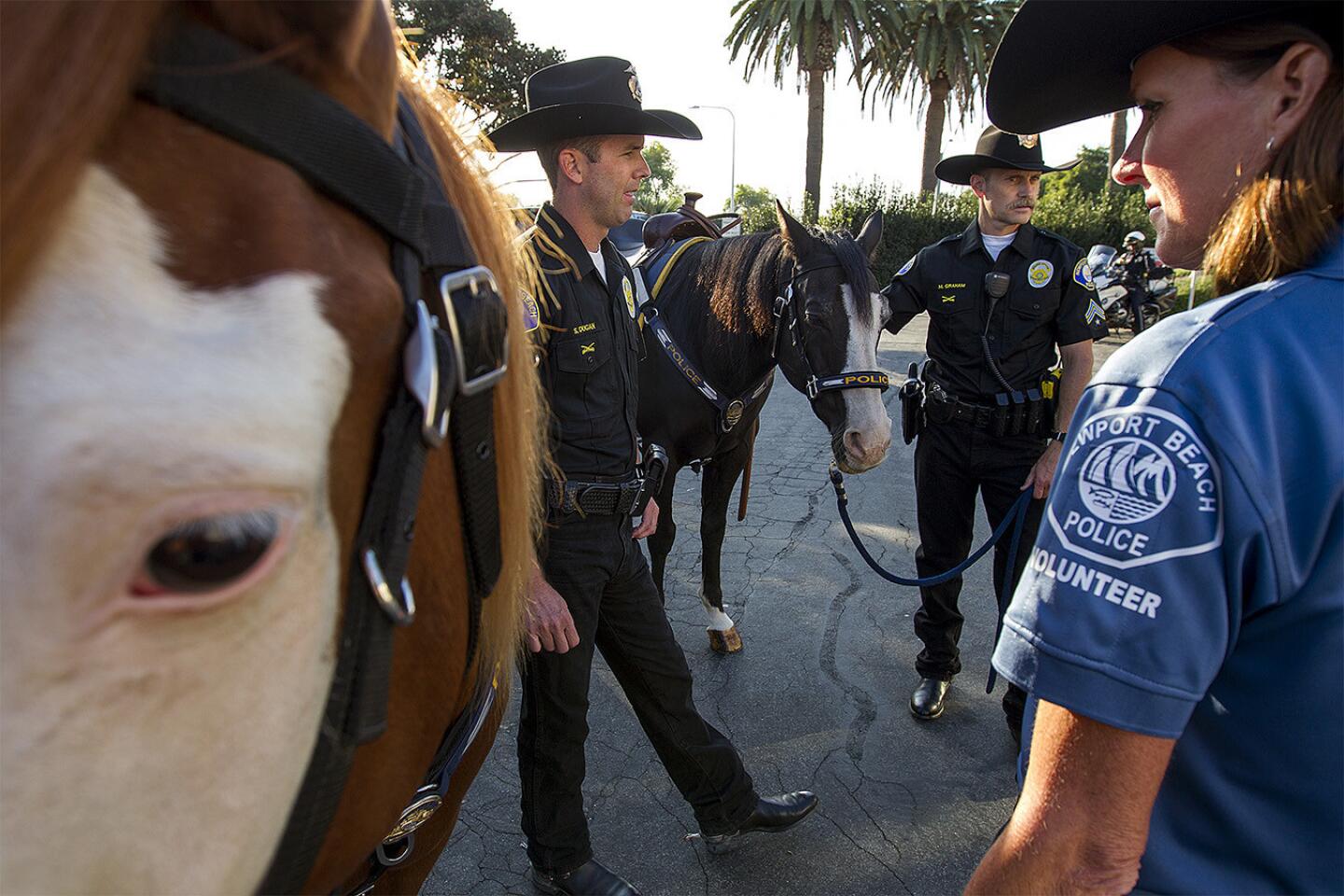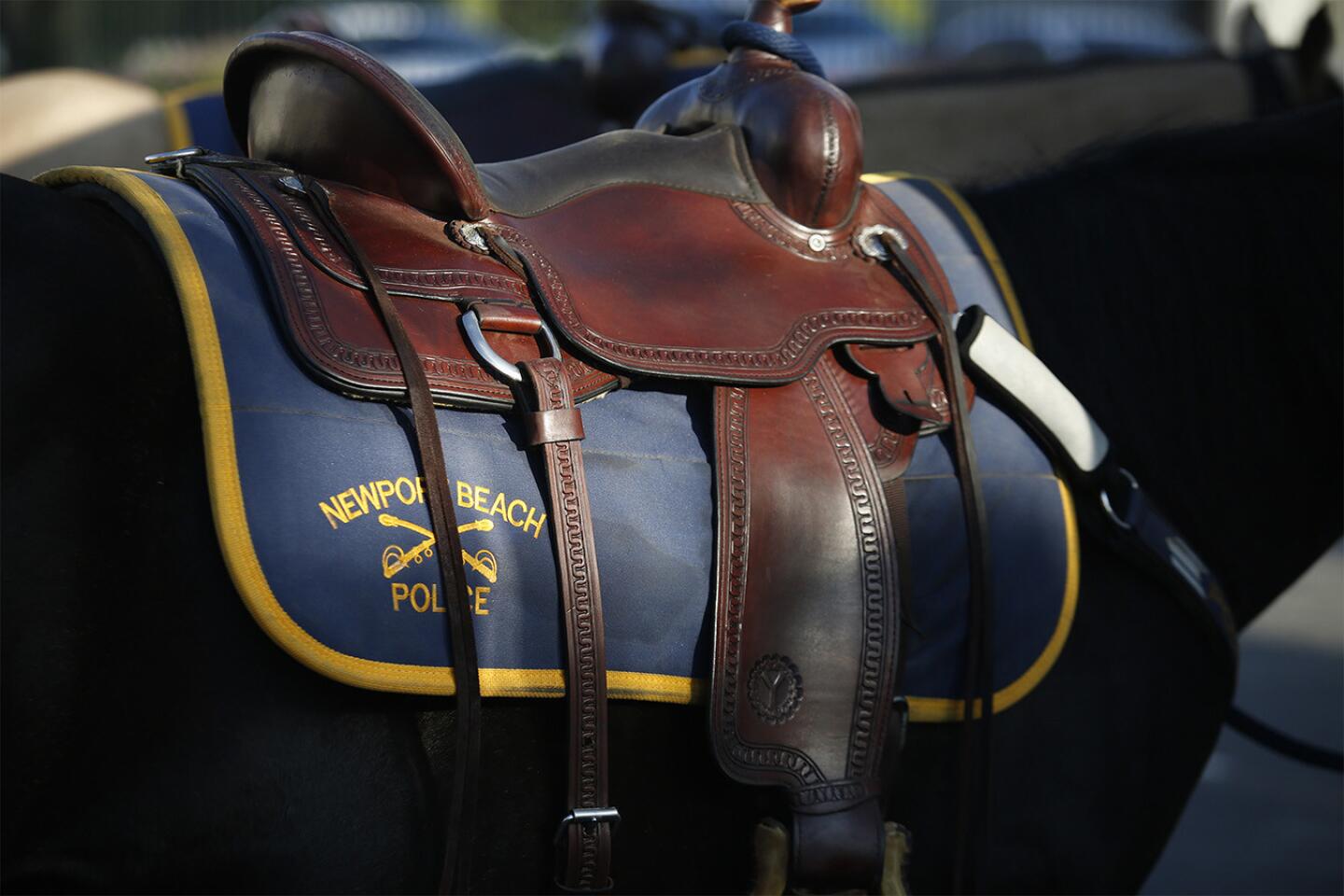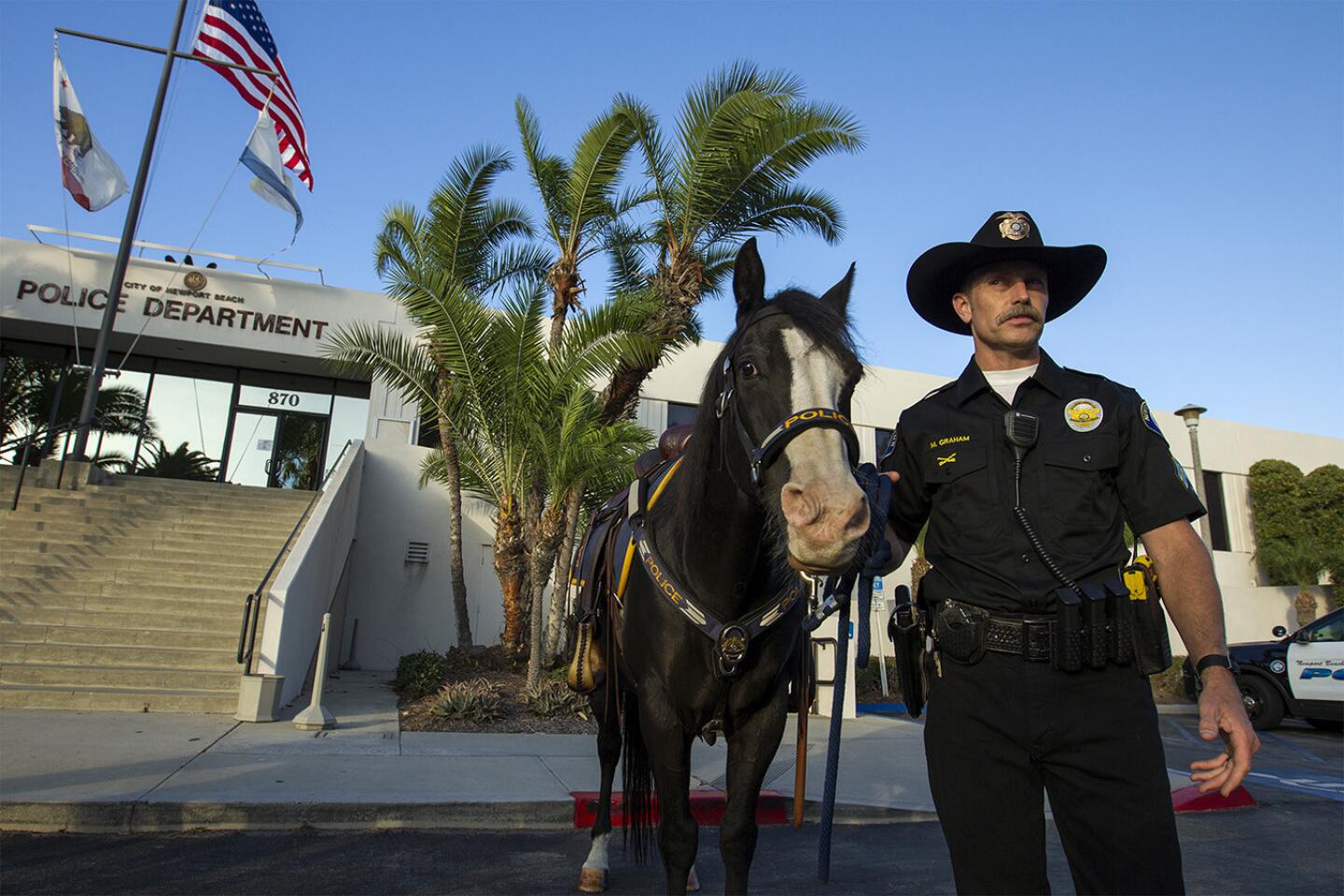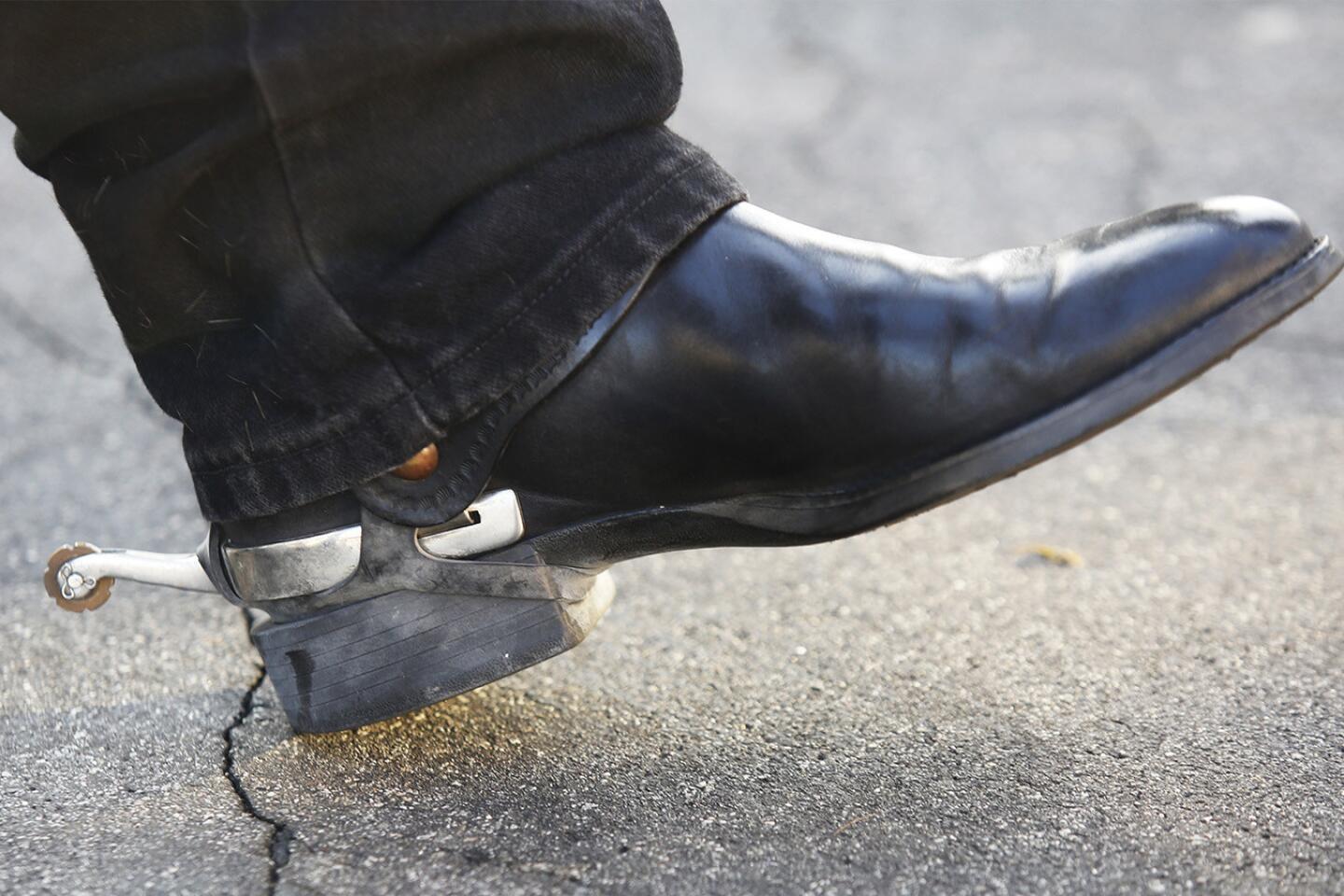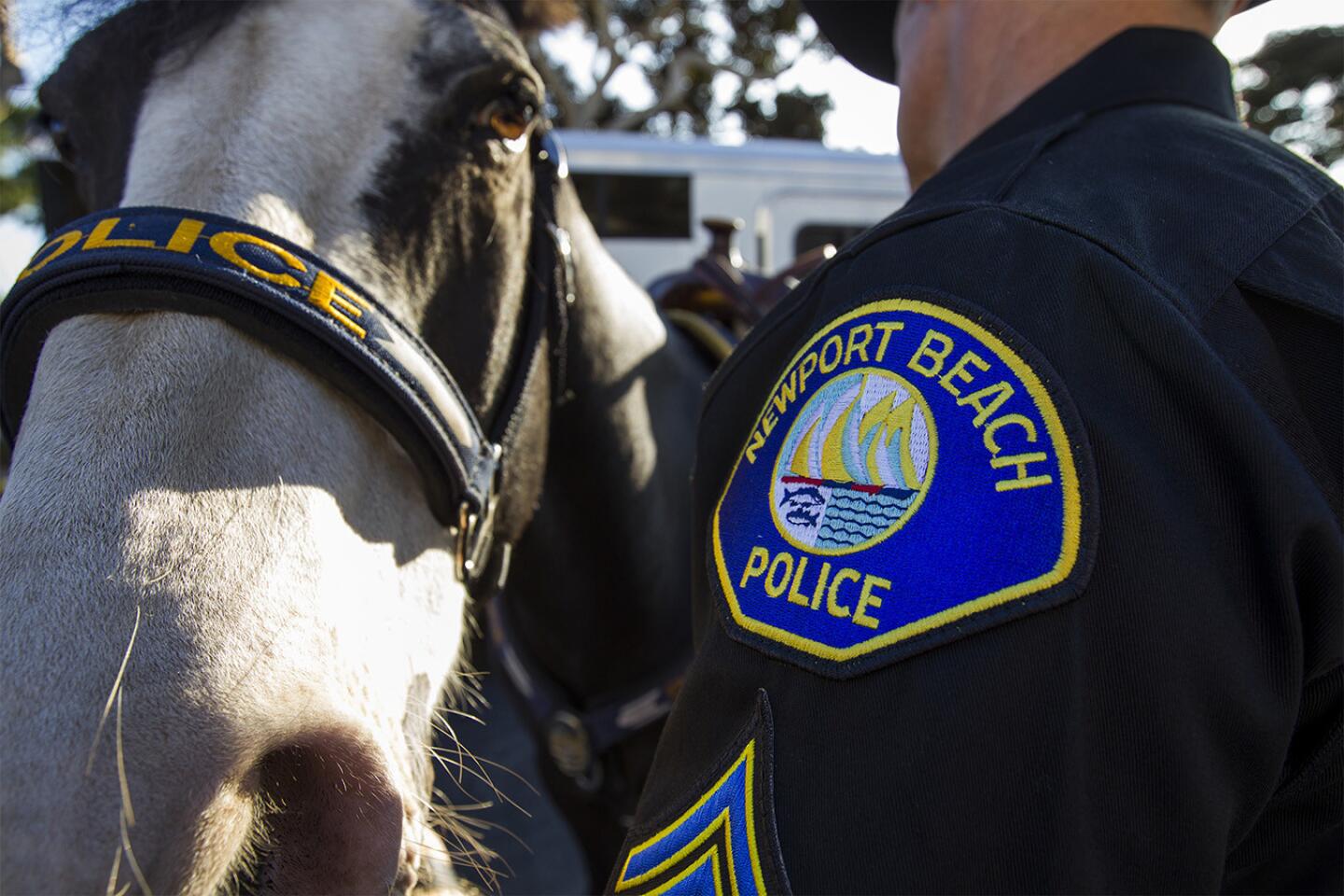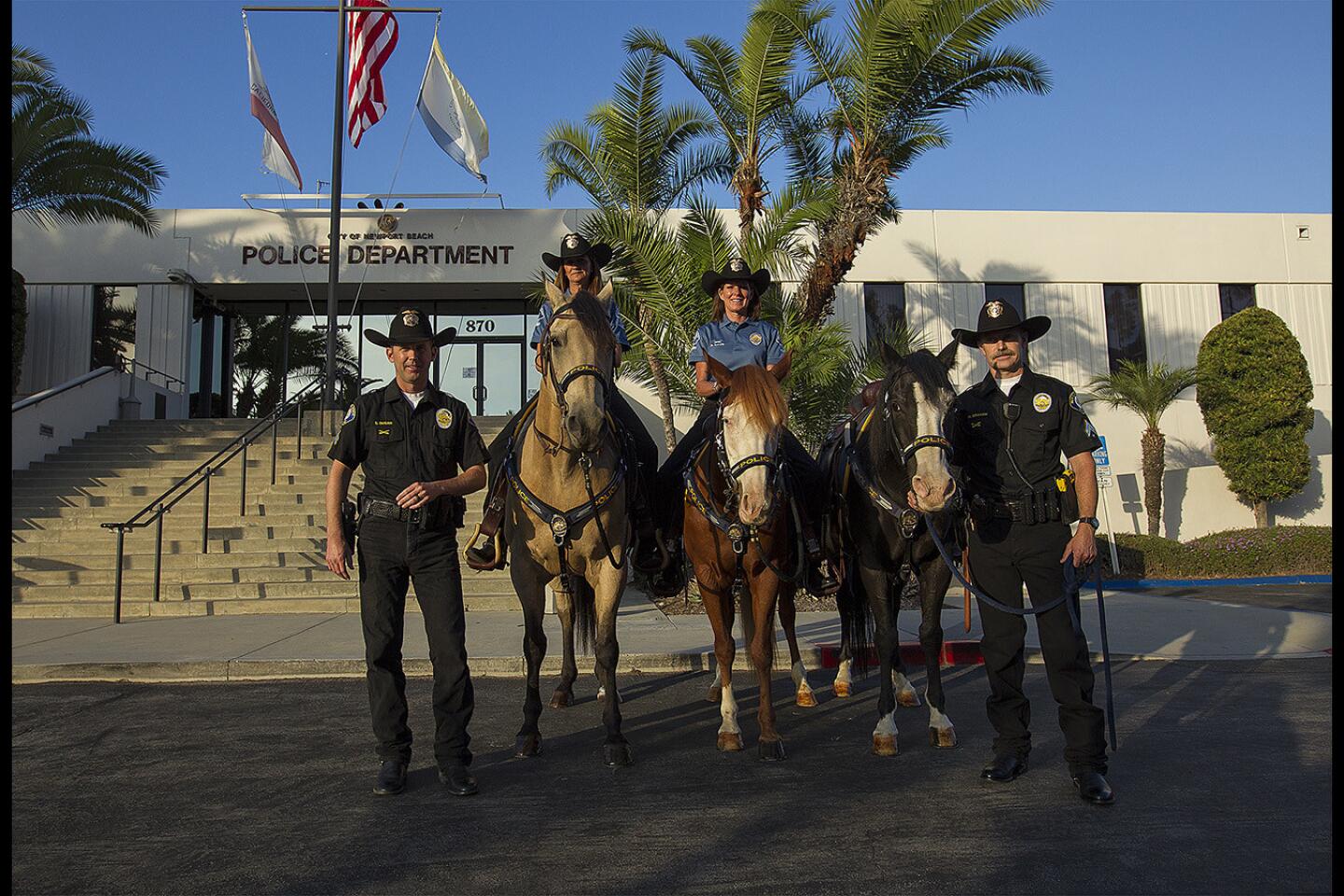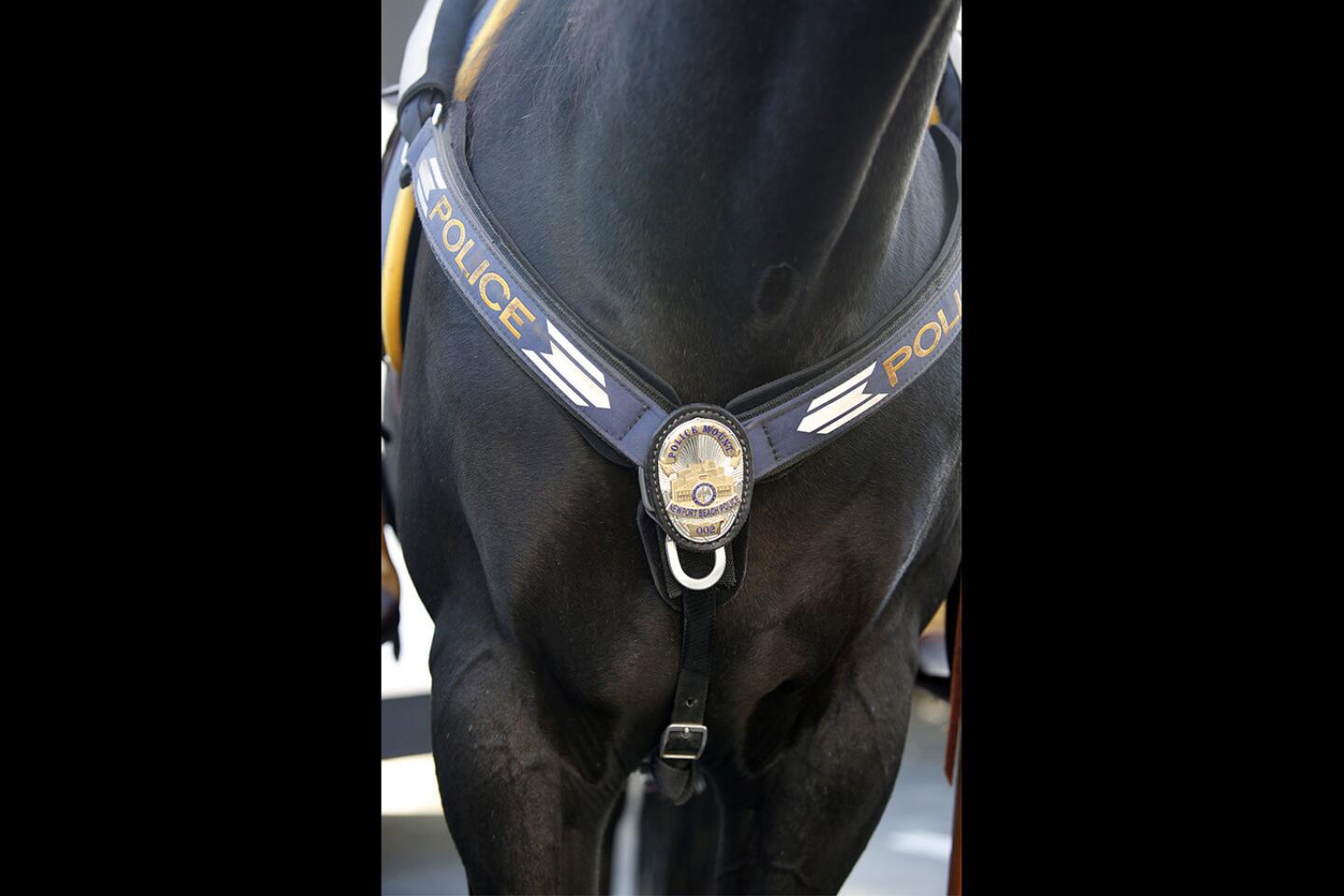Working with Newport Beach police horses is a ‘labor of love’ for mounted unit
- Share via
Stogie is named for a distinctive mark near the edge of his mouth that looks like a cigar. Cricket, with her one brown eye and one blue eye, has a taste for Lay’s sour cream and onion potato chips.
And Huck enjoys sharing a cold one while off duty.
He’s not horsing around. Huck — though not technically of age — has a taste for suds. Coors Light to be exact.
“It has to be cheap,” said Huck’s owner, Lori Hayden, a volunteer with the Newport Beach Police Department. “He doesn’t like IPAs. He spits them out. It’s actually really funny to watch.”
While the three quarter horses — like the officers and volunteers who own them — have distinct characteristics, they all have a purpose — to help rein in crime.
Stogie, Cricket and Huck are all members of the Newport Beach police mounted unit, which began in 2013. Stogie has served for nearly two years, Huck started this year and Cricket jumped onboard a few weeks ago.
The unit — consisting of two officers, two volunteers and their horses — is part of the Orange County Regional Mounted Unit, which is made up of the eight police agencies in Orange County with mounted units (Anaheim, Garden Grove, Santa Ana, Newport Beach, Buena Park, Irvine, Huntington Beach and the county Sheriff’s Department).
The Regional Mounted Unit enables the agencies to have a significantly larger enforcement presence for events such as rallies, the U.S. Open of Surfing and other big gatherings.
Hayden and Bonnie Davis, the unit’s two civilian volunteers, last week were granted approval to ride the horses in uniform, a first in Orange County. The pair will not enforce laws but will assist officers as needed at events.
“We’re the eyes and ears,” Hayden said.
Hayden and Davis, who owns Cricket, also board the horses at their homes in Rancho Carrillo in Murrieta. On Wednesday, the volunteers made the trip from their homes to Newport Beach to talk with the Police Department’s Citizens Academy class. The students met all three horses in the parking lot of the police station and learned about their role in the department.
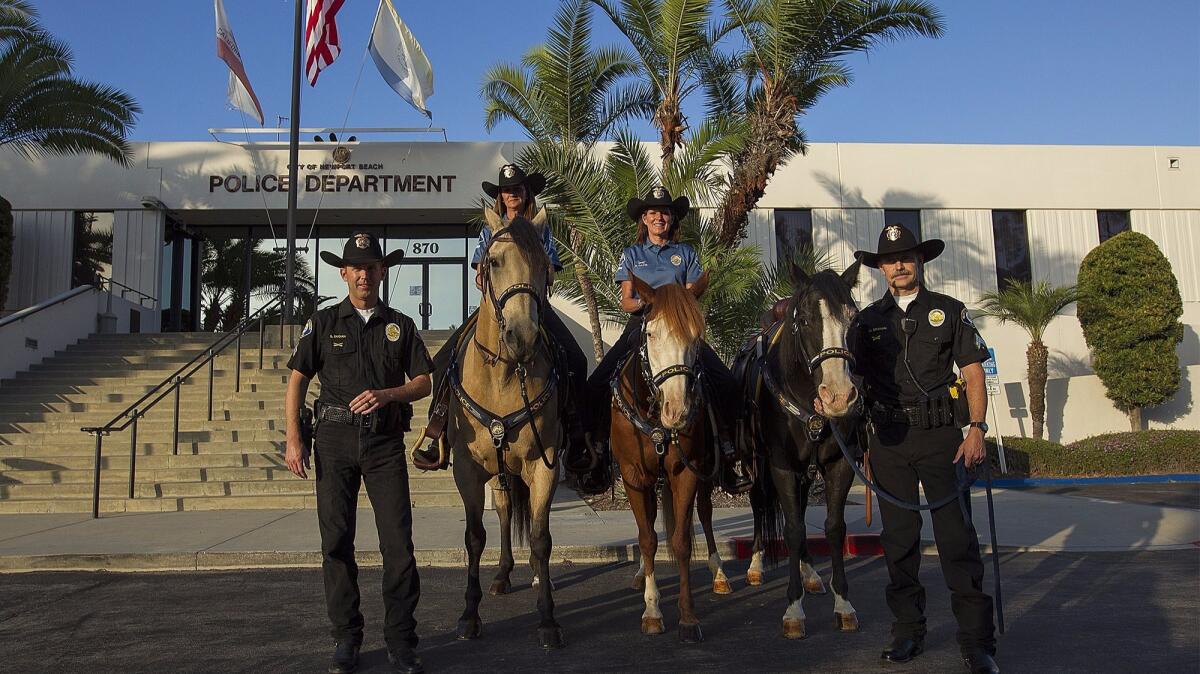
Currently, Newport Beach is one horse down from full strength.
Officer Shawn Dugan is in the market for a new partner after his horse Levi’s health problems became so severe that he had to be put down in July.
“He was in constant pain,” Dugan said. “I hadn’t even ridden him in four or five months. I couldn’t even get on him. It was very sad.”
Dugan said he’s looked at several horses but none has suited his needs. It takes a steed with a particular temperament to work in the law enforcement business.
To test that, Dugan uses items that the horses might see on a typical day in Newport Beach but would never see in the wild. He wants to observe how the horses react. Items such as trash bags, beach balls and police tape might send a typical horse sprinting in the other direction.
“A lot of horses will just up and take off, and that’s not going to work for us,” Dugan said. “Even if it’s something they’ve never seen before, we don’t expect them to stand still, but I don’t expect them to run across the street and pitch me off in the process.”
Each member of the unit goes through a 40-hour class to learn basic horsemanship, riding, crowd control and formation, and the horses are exposed to sensory items.
Most horses, by nature, are afraid of even the most non-threatening objects, so the officers are constantly exposing them to unfamiliar things.
“We basically have to desensitize them to those things by repeated exposure,” Dugan said. “They learn not to eat things and not to be afraid of them. It’s an ongoing process.”
Once they clear the hurdle of the beginning class, members go through an advanced training program that refines the horses’ — and riders’ — skills. Officers also learn crowd-control techniques, how to use a wood baton while riding the horse and how to contact a potential suspect.
Dugan and Officer Matthew Graham, who owns Stogie, train with their horses three days a week — before work, after work or on their days off.
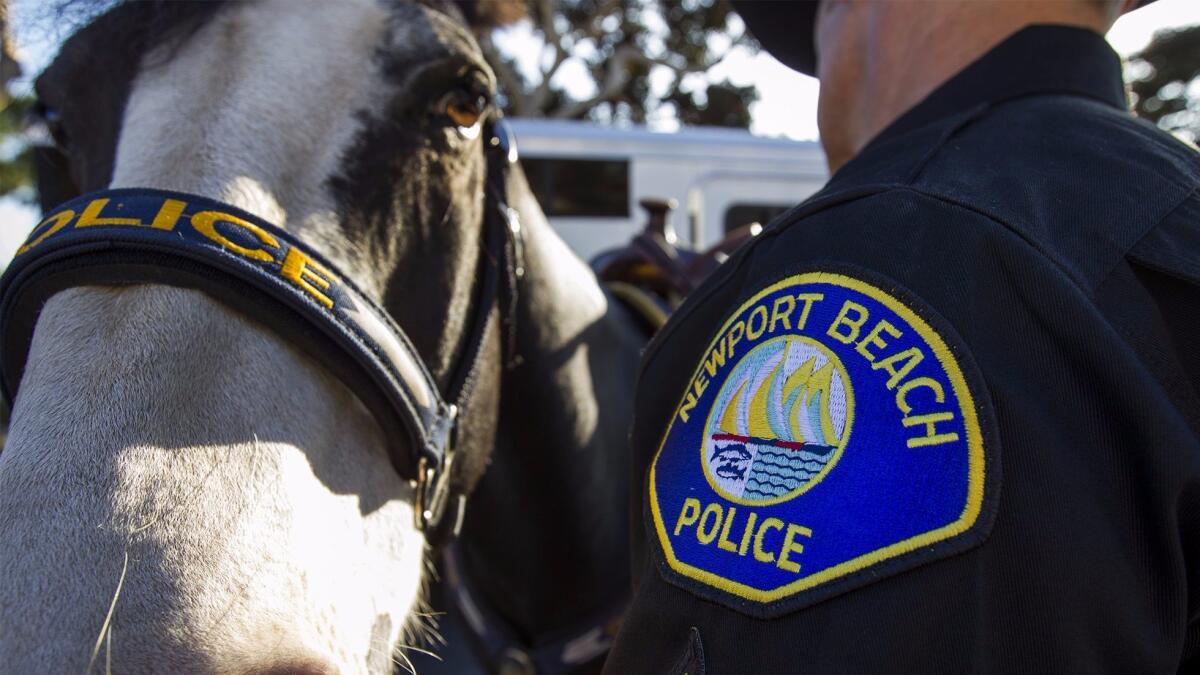
Though the horses are used for basic patrols, mostly on the beach on the Balboa Peninsula, they’re not one-trick ponies.
They are regulars at many community events, including National Night Out, Public Safety Day and the Fourth of July. And during the winter holidays, they greet shoppers and watch for thieves in the parking lot at Fashion Island.
But the horses really hit their stride during large gatherings where officers and their trusty steeds are tasked with keeping crowds under control. While the horses are majestic creatures, they also can be an intimidating force, especially in numbers and with badges, Graham said.
Last year the horses helped keep crowds at bay at political rallies in Orange County for presidential candidate Bernie Sanders and now-President Trump.
“People could be giving ground officers a really hard time, but as soon as the horses come in, it’s a different story,” Graham said. “They respect the horses because they’re big, and a lot of people don’t really realize what horses are capable of. They know they’re an animal and that people can’t control them all the time, so that fear factor makes people a little leery.”
There’s also the fact that each horse weighs more than 1,000 pounds and could crush the foot of anyone who steps in the way, officers say.
Unlike police canines that are bought and cared for as part of the Police Department’s budget, the cost of feeding and maintaining the horses falls on the shoulders of Dugan, Graham, Hayden and Davis.
The price tag of a quarter horse averages $3,000 to $7,000, and the cost of food, shoes and other gear grows from there, Dugan said.
“It’s definitely a lifestyle,” he said. “You can’t take just anybody and stick them on a horse and go. It’s definitely something you have to be into.
“It’s a labor of love.”
Twitter: @HannahFryTCN
All the latest on Orange County from Orange County.
Get our free TimesOC newsletter.
You may occasionally receive promotional content from the Daily Pilot.
